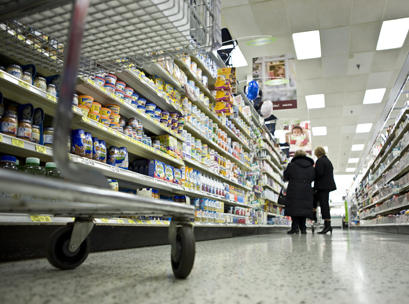
Both Coles and Woolworths recorded inflation during September, signalling a “positive catalyst” for the Australian grocery market, according to UBS analysts.
The 7th UBS Evidence Lab Grocery Study reports that deflationary pressure across the market eased in the first quarter of FY20, driven by fresh inflation and easing dry deflation.
“We believe an improving inflation backdrop is a positive catalyst for the sector; if September trends were to continue, we see scope for the sector to re-rate further,” the report reads.
September was the first month that Woolworths recorded inflation since UBS began collating year-on-year data in January 2018. Inflation returned in fresh for the first quarter, but not in dry. The report found that centre store categories experienced continued deflation, but at an “easing rate”.
At Coles, inflation returned across both dry and fresh over the September quarter with Coles taking more price increases in dry compared to rival Woolworths. Coles ranging increased and promotional intensity eased but the retailer is the least preferred prospect of analysts who believe “risk exists” to near-term earnings.
“We see risk to consensus for Coles, albeit believe the market is less concerned re near-term risk with a focus on FY21+ and the improving competitive backdrop,” the report states.
Analysts believe Metcash, which recently lost its biggest grocery wholesaler Drakes Supermarkets, will be the biggest beneficiary of a return to dry inflation and is the analysts’ “preferred pick”.
The report is positive about the future of the sector and expects deflationary trends to continue to abate.
“We believe the market is becoming more rational, a positive for sector sales, margin and valuations. As a result, we expect easing deflationary trends over 2019 to continue. In our view, the market is starting to price this in, with valuations now trading in line with the ‘industry recovery’ period.”
Analysts forecast the food and liquor industry to accelerate to about 4 per cent year-on-year in 2019/2020, driven by more rational pricing, company and supplier expectations for inflation and Aldi share gains slowing in South Australia, Western Australia and the East-coast.
This story originally appeared on Inside FMCG.





